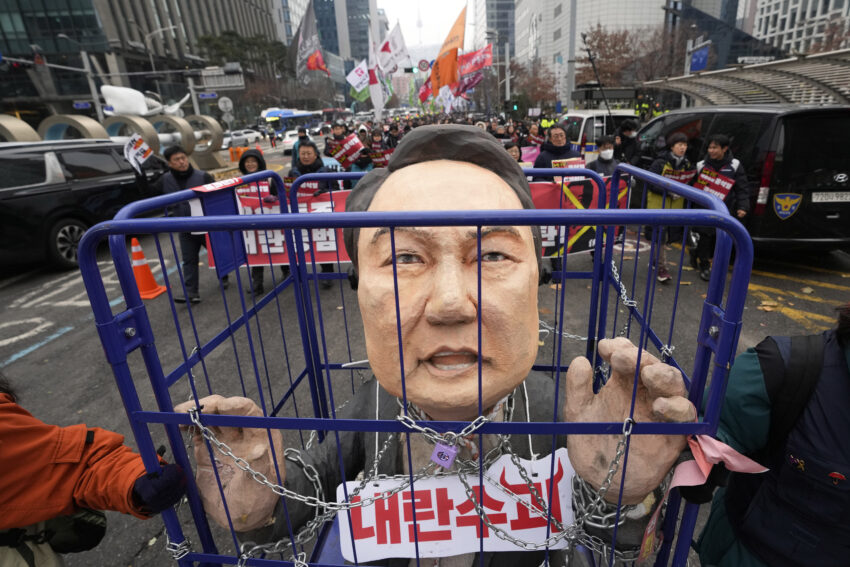Yoon’s imposition of martial law lasted only six hours but triggered huge political turmoil, halting high-level diplomacy and rattling financial markets. Despite Yoon’s deployment of troops and police, enough lawmakers managed to enter the assembly chamber to overturn it unanimously.
Yoon’s powers have been suspended since the opposition-controlled National Assembly voted to impeach him on Dec. 14 over his imposition of martial law, during which hundreds of troops and police officers were deployed at the assembly. By law, a president in South Korea is allowed to declare martial law only during wartime or similar emergencies and has no right to suspend parliament’s operations even under martial law.
Kwak Jong-keun, the commander of the Army Special Warfare Command, testified at the National Assembly that Yoon called on troops to “quickly knock down the door and drag out the lawmakers who are inside.” Kwak said he did not carry out Yoon’s orders.
Whether you give once or many more times, we appreciate your contribution to keeping our journalism free for all.
We Need Your Support
Other news outlets have retreated behind paywalls. At HuffPost, we believe journalism should be free for everyone.
The deputy prime minister and finance minister, Choi Sang-mok, has become South Korea’s new interim leader. On Tuesday, Choi appointed two new justices, saying he feels the urgency to resolve political uncertainty and national divide.
The agency says it’s been investigating whether Yoon’s Dec. 3 declaration amounted to rebellion.
Choi said that investigators were still likely to visit Yoon’s residence to show they are strictly and fairly carrying out their work.
Under South Korean law, the leader of a rebellion can face the death penalty or life imprisonment if convicted. Yoon has presidential immunity from most criminal prosecutions, but the privilege does not extend to allegations of rebellion or treason.
Choi’s moves drew rebukes from both the ruling and opposition parties. The governing People Power Party accused him of surrendering to the opposition’s political offensive, while the main liberal opposition Democratic Party urged Choi to quickly appoint the remaining ninth justice.
Former President Park Geun-hye, who was thrown out of office in 2017 following an impeachment over a corruption scandal, also refused to meet with prosecutors while in office. She underwent questioning by them and was arrested after the Constitutional Court removed her from office.
You’ve supported HuffPost before, and we’ll be honest — we could use your help again. We view our mission to provide free, fair news as critically important in this crucial moment, and we can’t do it without you.
Yoon has claimed he wasn’t trying to stop the functioning of the assembly, saying that the troops were sent to maintain order, and also denied planning to arrest politicians. But comments by now-arrested commanders of military units sent to the assembly have contradicted this claim.
Yoon has argued his decree was a legitimate act of governance, calling it a warning to the main liberal opposition Democratic Party — which he has called “a monster” and “anti-state forces” — that has used its legislative majority to impeach top officials, undermine the government’s budget, and which he claims sympathizes with North Korea.
Related
South Korea

